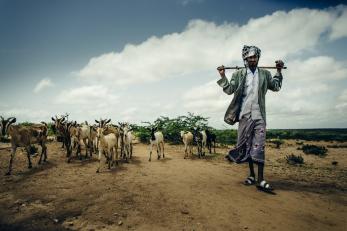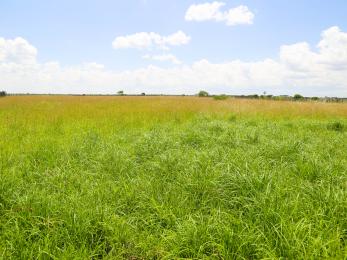Enhancing Resilience to Severe Drought: What Works?

Download the report brief ▸
Download the full report ▸
Can investing in resilience mitigate the worst impacts of recurrent humanitarian crises, preserving development gains? In 2015, one of the strongest El Niño cycles on record exposed parts of Ethiopia to the worst drought in decades. At its height, over 10 million people were in need of food aid with a value over one billion dollars. Even as the response mounted, this humanitarian crisis enabled Mercy Corps to test the impact of its resilience programming under the USAID-funded Pastoralist Areas Resilience Improvement through Market Expansion (PRIME) project.
This unique impact evaluation is among the first to rigorously evaluate the effects of a resilience-focused project in the face of a severe shock. The results are encouraging, with compelling evidence that supports the efficacy of multi-year, flexibly funded, integrated approaches to building resilience to severe shocks. Specifically, households that had benefitted from PRIME fared better than others in the face of drought through their:
- Enhanced food security: Households reached by PRIME were better able to maintain sufficient food consumption, a key indication that the program improved people’s income and/or access to markets to enable them to consume more nutritious foods even during crisis.
- Greater assets and lower vulnerability to poverty: PRIME interventions had a positive impact on households’ ability to maintain important household and livestock assets and avoid impoverishment in the face of the drought.
- Better animal health and fewer livestock deaths: Compared to the non-targeted households, PRIME beneficiaries were able to maintain healthier herds despite the severe drought conditions. They were less likely to experience animal deaths, and in particular were able to protect their breeding females.
- No impacts on coping strategies: Both PRIME and comparison group households used similar types and amounts of response mechanisms to manage the effects of the drought.
- No impacts on ‘downstream’ shocks: There were no differences between PRIME beneficiaries and the comparison group concerning shocks experienced, including any knock-on effects of the drought like market price shocks or animal disease.
